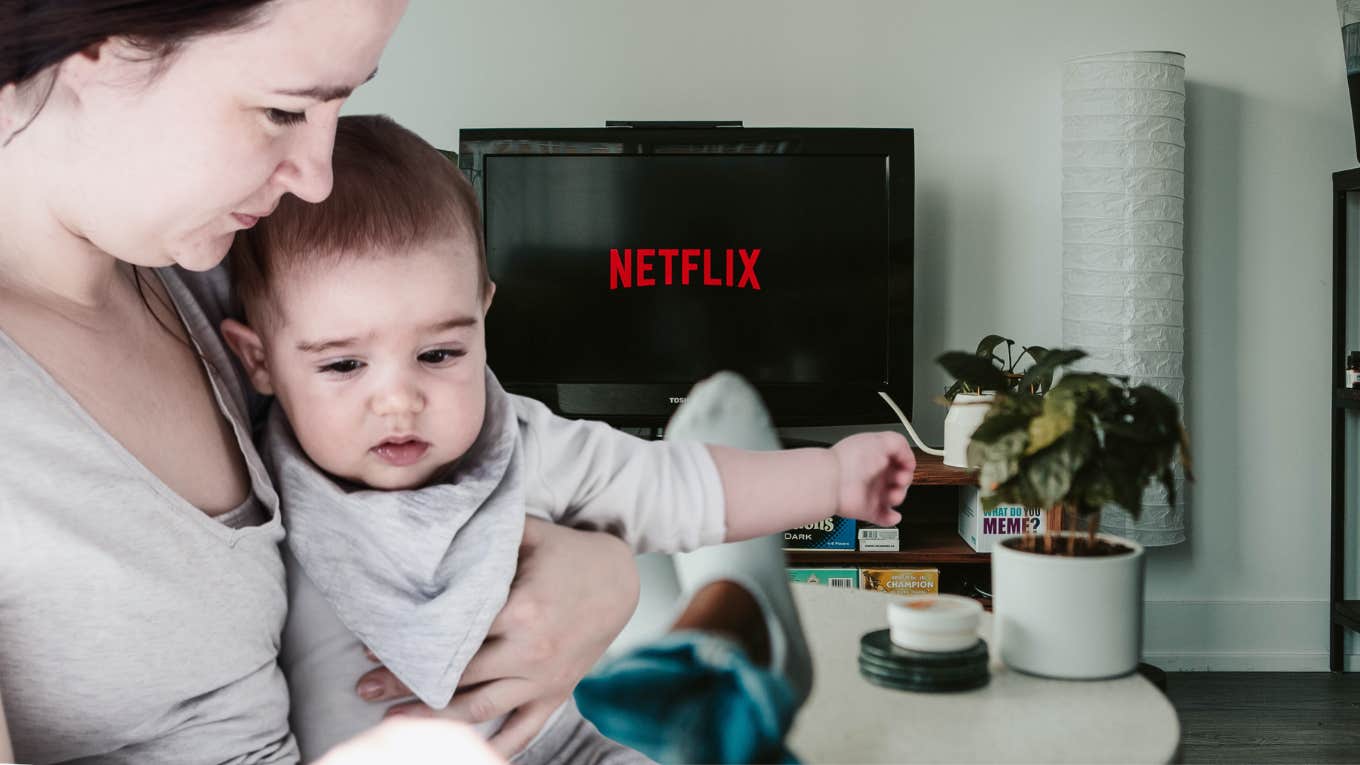Jobless Man Tells Wife To Stop Buying Formula Instead Of Canceling Netflix
How would this make you feel?
 Mollie Sivaram via Unsplash / Ljobsy via Shutterstock
Mollie Sivaram via Unsplash / Ljobsy via Shutterstock According to a Deloitte digital trends survey, families spend about $48 a month, or $576 per year, on streaming services such as Netflix and Hulu. Baby formula, on the other hand, can add up to as much as $10,500 per year.
Most people would agree that one of these is largely a necessity while the other is a luxury — aside from one husband and father, who appears to believe that Netflix is more important than baby formula during times of financial hardship.
One "breadwinning" wife and mother found herself in a disagreement with her unemployed husband over his expensive streaming service subscriptions.
The woman took to Reddit to explain her situation, noting that her husband "uses part of my salary for his subscribtion/paid streaming services which cost about 80+ a month for Hulu (premium) Netflex, HBO, Amazon, ESPN+ and more." Finding herself continuously "coming up short with money," she found that these subscriptions ate into a lot of her income. However, when she asked him to cut back on the number of services he subscribed to, he accused her of financial abuse.
“He said that I was trying to financially control him since I got offended when he pointed out that I waste money on makeup and explained that he can not and WILL NOT be bought with money no matter how desperate he is,” she wrote.
While financial abuse is a valid form of abuse in relationships, there's a difference between disagreeing on finances (normal) and someone wielding all of the financial power in the relationship (abnormal). Despite making all of the money in this relationship, it appears this woman gave her husband access to spend on what he wants, and only asked him to curb his spending when saving became an issue.
The woman explained that she attempted to come up with a fair compromise, asking her husband to choose just one streaming service until he could find a job with income that could help support the family. However, the woman wrote that "he refused," calling the subscriptions his "right" since he's a stay-at-home parent "staying with our sons all day and it's taxing just like my job."
Her husband told her to stop buying "unnecessary" and "expensive" formula and go back to breastfeeding to save money.
"I stopped breastfeeding for health issues and now work but he never stopped criticizing my decision to use formula calling it waste of money when I could push past the pain and provide our son with real benefits," she wrote in an edit to the post. She added that despite her husband staying at home with the children, she still performs most of the housework, a sad reality for many working women.
In addition, her husband refuses to get any job that's not in the field he studied.
Unsurprisingly, people were on the mom's side, noting the man's childish behavior. "His 'dignity' won't let him work out of his field, but it will let him sit on his butt, watch ESPN and do virtually no chores??" someone asked, adding, "Congratulations you have a child you didn't give birth to living in your house."
The work stay-at-home parents perform is often undervalued. However, families need to work together to find a budgeting system that works for them.
As published author and certified coach Pegi Burdick has explained, one of the biggest financial mistakes couples make is not taking responsibility for their spending. In this couple's case, they pointed the finger at each other instead of looking at the bigger picture.
Kimberly Palmer, a personal finance expert at NerdWallet, suggested couples try the 50/30/20 budgeting method, where 50% of the income goes to cost of living (such as baby formula), 30% towards wants (such as subscription services), and 20% towards savings.
"We find the 50/30/20 budgeting method really useful because it leaves room for savings, debt payments, and also wants—you don't have to deny yourself everything," Palmer told Real Simple.
Laying out the costs of everything and dividing it this way can help couples see who is spending money and on what, as well as how to make things work for everyone.
Sydney Taylor is a writer and graduate of Emerson College, where she majored in journalism with a minor in peace and social justice.

